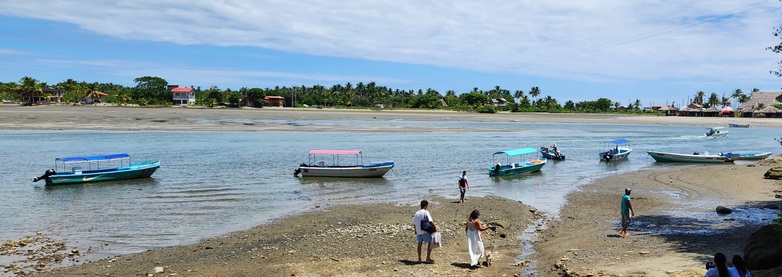Marine litter prevention in Ecuador
Marine Litter Prevention in Ecuador – MARLI
-
Client
German Federal Ministry for the Environment, Nature Conservation, Nuclear Safety and Consumer Protection (BMUV)
-
Country
-
Political sponsors
More
-
Runtime
2023 to 2027
-
Involved
Universidad San Francisco de Quito (USFQ), Leibniz-Zentrum für Marine Tropenforschung (ZMT)
-
Products and expertise
Climate, environment, management of natural resources
Context
Polluted marine ecosystems are adversely affecting marine and coastal biodiversity in Ecuador. This is having a negative impact on the sustainable development of communities along the Pacific coast and on offshore islands. One of the main causes is the widespread use of plastic and its subsequent unregulated disposal in the ocean. A lack of awareness among local decision-makers and residents is also playing a major role in this.
Objective
Selected coastal marine ecosystems are less polluted with plastic waste.
 © GIZ/Gunter Simon
© GIZ/Gunter SimonApproach
The project is working with the national government, local administrations, the private sector and research institutions and is supporting local environmental education and awareness-raising through its activities.
It is promoting inter-institutional exchange through events held to formulate and implement national strategies and policies for a circular economy.
To supplement this, it is running pilot projects in the municipalities of Muisne and Salinas, where innovative measures and technologies are helping to improve waste collection and separation as well as plastic recycling.
The project is collaborating with private companies on developing approaches to replace plastic and promote partnerships with local recycling organisations.
The project has two research components: it is providing financial support for a monitoring system that measures the plastic waste generated and avoided. The University of San Francisco de Quito (USFQ) is implementing this system. The project is also supporting a simulation model from the Leibniz Centre for Tropical Marine Research (ZMT) designed to measure the impact of plastic waste on the mangrove ecosystem.
Last update: August 2024






